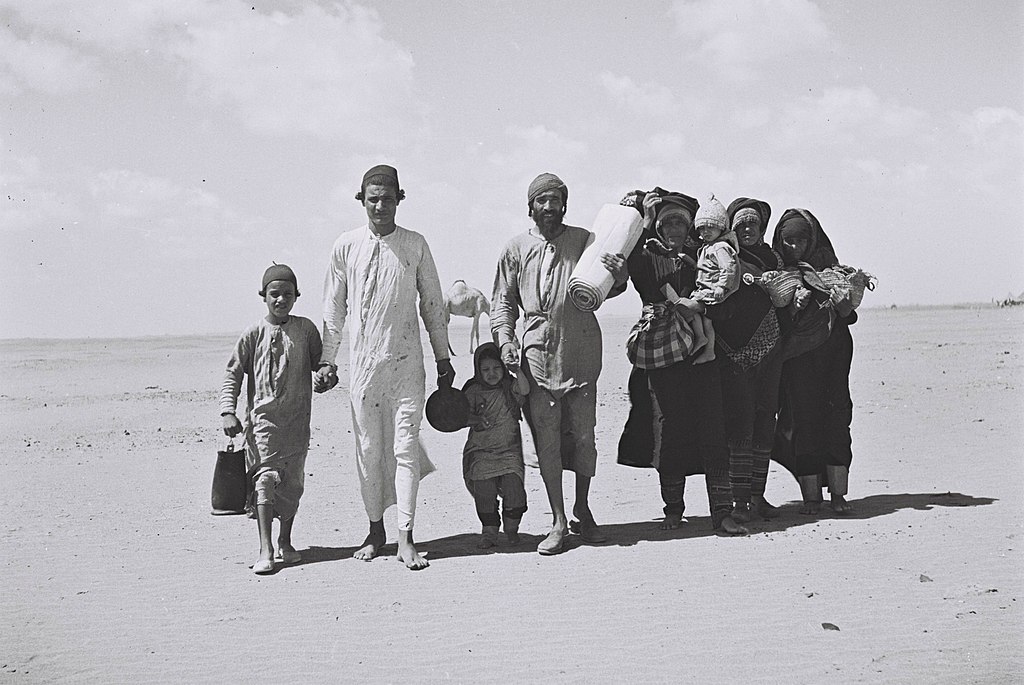Jerusalem Post
SHANY LOUSKY-LEVY
MAY 19, 2020

Last Friday, the Palestinians commemorated “Nakba Day,” as they do every year to describe the “disaster” of the founding of the State of Israel, especially the birth of the Palestinian refugee problem, a result of the war instigated by the Arab states against Israel on the eve of the declaration of its independence.
According to official data of the United Nations Relief and Works Agency for Palestine Refugees in the Near East, in the early 1950s, UNRWA took upon itself to resolve the needs of approximately 750,000 Palestinian refugees, despite this number being debatable. The UN coordinator numbered only 427,000 in Israel at the time, of which 360,000 required assistance.
Do you know the number of Jewish refugees who was expelled or escaped from Arab countries in the wake of that same Declaration of Independence? Eight hundred and fifty thousand.
I am not participating in the “Oppression Olympics” here, rather I’m pointing out the conflicting narratives. Even though in ‘48 there already existed a UN agency whose role was to protect and assist refugees (the UNHCR), a new and exclusive refugee agency was created for the Palestinians.
The reason for this was the immense pressure applied by the Arab countries on the UN, with the purpose of immortalizing the refugee crisis as part of the struggle against the State of Israel. This, is in spite of the fact that in a research report by the Institute of Palestinian Studies in Beirut, it was raised that the majority of the Arab refugees were not exiled during the war, and that approximately 68% of them left their home without so much as seeing an Israeli soldier.
The number of Palestinian refugees continued to grow with the years, and today stand at approximately 6.5 million people scattered between the West Bank, Gaza Strip, Jordan, Lebanon and Syria, according to UNRWA. Contrary to other refugees, in a method that is unprecedented, the status of Palestinian Refugee is passed on as an inheritance from generation to generation, and prevents any opportunity of a pragmatic agreement with them.
This, then, is the key to understanding the narrative: Israel’s enemies never intended to assist those refugees overcome their misery.
In order to fully grasp the absurdity, we must become familiar with the parallel story of the Jewish refugees from Arab countries. In 1945, there lived across the Middle East approximately one million Jews in Arab countries. Only a few years later, there remained just a few thousand.
The Declaration of Independence caused the flight of hundreds of thousands of Jews in the dead of night with just the clothes on their backs, leaving behind a rich Jewish culture and legacy. Starting then and until the end of the 1960s, a part of the Jewish communities that remained were expelled, and some were forced to leave eventually due to stringent laws and abuse on the part of the authorities.
My father, born in Morocco, was one of them. In the fall of 1963, following six years of underground activity as part of the pioneering youth movement Dror, my father was notified that he had to leave Morocco immediately because the authorities were about to arrest him.
Without any advance notice, he was smuggled to France by the Misgeret (an underground organization acting on behalf of the Mossad), and from there he arrived in Israel. My father shed his “refugee-ness” and left it behind. Like his friends, he dedicated himself to taking his fate into his own hands, in a country full of refugees – something which is Israel’s founding Ethos.
He did not wait for anyone to build him a place to call home, neither did he ask for himself or his descendants to be protected and cared for.
Let’s not minimize the suffering of a civilian population that was forced to uproot from their homes after 1948. However, at the end of seven decades, the “Nakba” has become a narrative of eternal refugees, which serves the struggle against Israel in the form of demands for return, the practical interpretation of which is the destruction of Israel as a Jewish state.
The writer is the spokesperson and director of external relations at StandWithUs Israel.
Read the article here.
The writer is the spokesperson and director of external relations at StandWithUs Israel.




